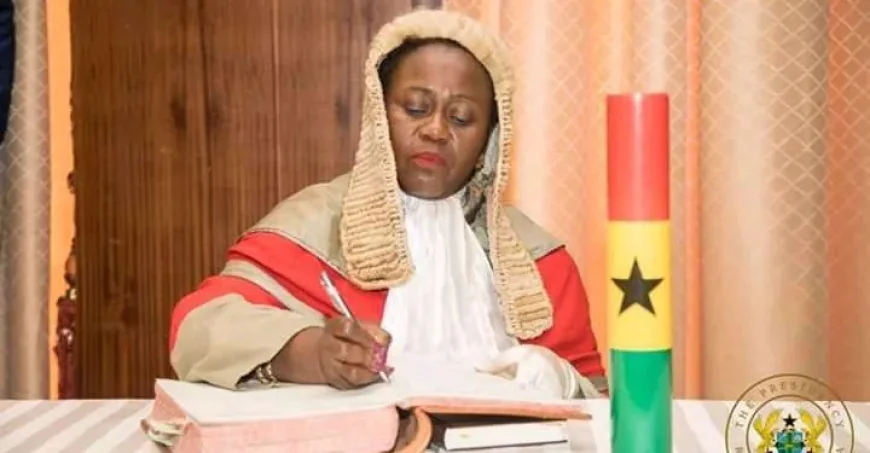Chief Justice Torkornoo Files Supplementary Affidavit, Alleges Mental Torture and Unfair Hearing
Ghana’s Chief Justice Gertrude Torkornoo files a supplementary affidavit in the Supreme Court, citing violations of her constitutional rights amid ongoing inquiry.

Justice Gertrude Araba Esaaba Sackey Torkornoo, the Chief Justice of Ghana, has filed a supplementary affidavit in support of her motion for interlocutory injunction before the Supreme Court, citing severe violations of her constitutional rights and dignity during an ongoing presidential committee inquiry.
The affidavit, sworn on May 26, 2025, follows her initial filing on May 21 and outlines recent developments that, according to her, constitute a "complete desecration" of her right to a fair trial, amounting to inhuman and degrading treatment.
Parties to the Case
Justice Torkornoo, the Plaintiff/Applicant, is challenging the conduct of an inquiry set up by the President. The Defendants/Respondents include:
-
The Attorney-General
-
Justice Gabriel Scott Pwamang
-
Justice Samuel Kwame Adibu-Asiedu
-
Daniel Yao Domelovo
-
Major Flora Bazwaanura Dalugo
-
Professor James Sefah Dzisah
Key Allegations in the Supplementary Affidavit
In her sworn statement, Chief Justice Torkornoo recounts the following:
-
On May 22, she informed the presidential committee about the Supreme Court case she had initiated. While the committee adjourned briefly and accepted her filed processes, it resumed proceedings the next day, May 23, showing “determination to proceed regardless.”
-
She has not been officially told the basis of the prima facie case against her or what specific charges she must respond to — a situation she says denies her the ability to defend herself effectively.
-
Her legal counsel was refused recognition on May 15 due to her absence, despite having received hearing notices. The committee continued to sideline her counsel even in her presence.
-
On May 23, the committee announced that petitioners would not testify themselves but would call other witnesses — a move Torkornoo argues violates due process and “rules of fair hearing,” as petitioners must be subject to cross-examination.
-
She recounts troubling conditions at the hearing venue — a high-security zone at the Castle, Osu, rather than a court facility. She says her family was denied entry, and she and her lawyers were subjected to body searches and barred from using phones or laptops, while petitioners’ counsel were allowed full access.
“All Article 146 proceedings before mine have taken place in court buildings. Why mine is being held in a fortress boggles the mind,” she said in the affidavit.
Call for Injunction and Defense of Judicial Independence
Justice Torkornoo argues that the process appears to be a "mockery of justice" and an orchestrated effort to remove her from office unfairly.
“This is an assault on judicial independence,” she warned, requesting the Supreme Court to intervene through an interlocutory injunction.
She maintains that her treatment violates not only her personal rights but also threatens the institutional integrity of Ghana’s judiciary, especially the constitutional safeguards around the tenure of superior court judges.
Next Steps
The Supreme Court is expected to consider her application in the coming days. The affidavit has raised significant public interest, with legal analysts closely watching how the court navigates this unprecedented challenge involving the nation's highest judicial officer.


